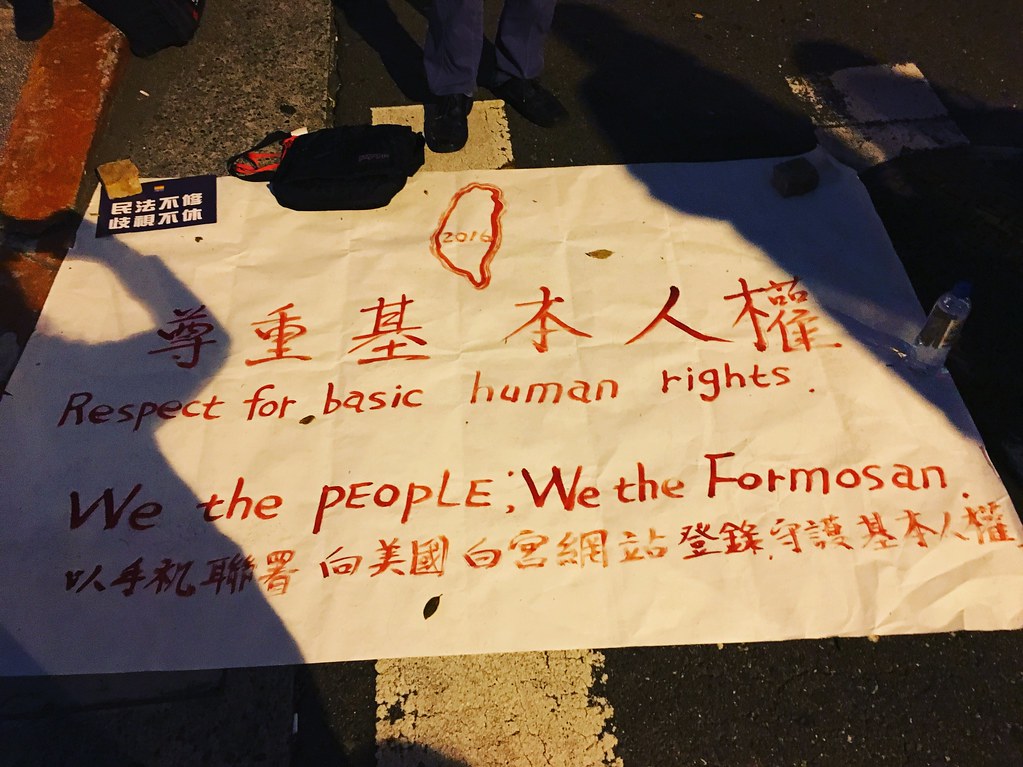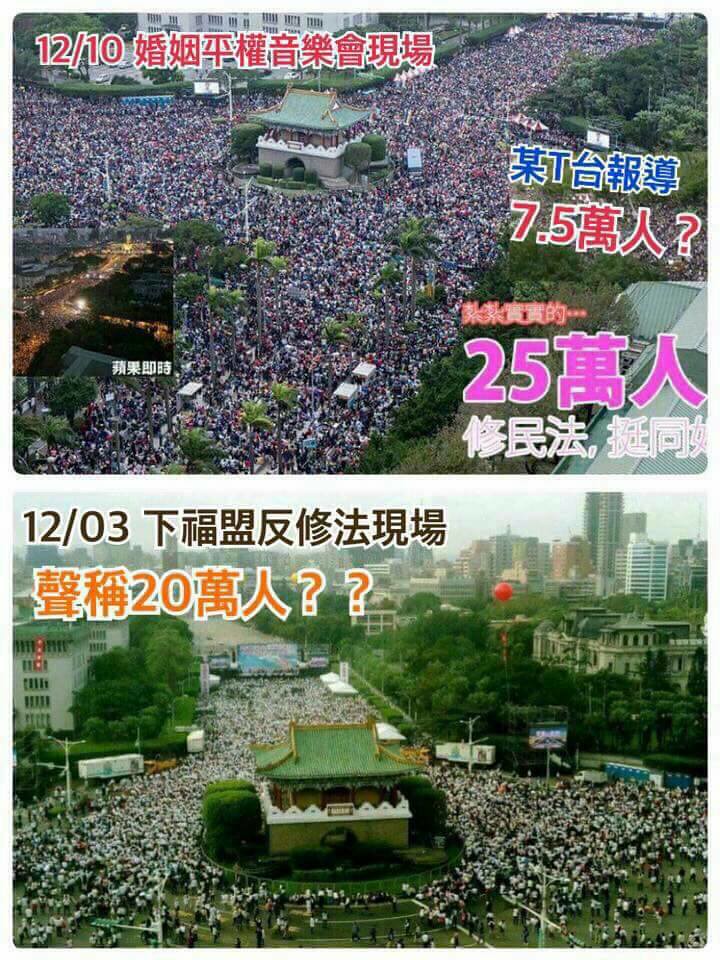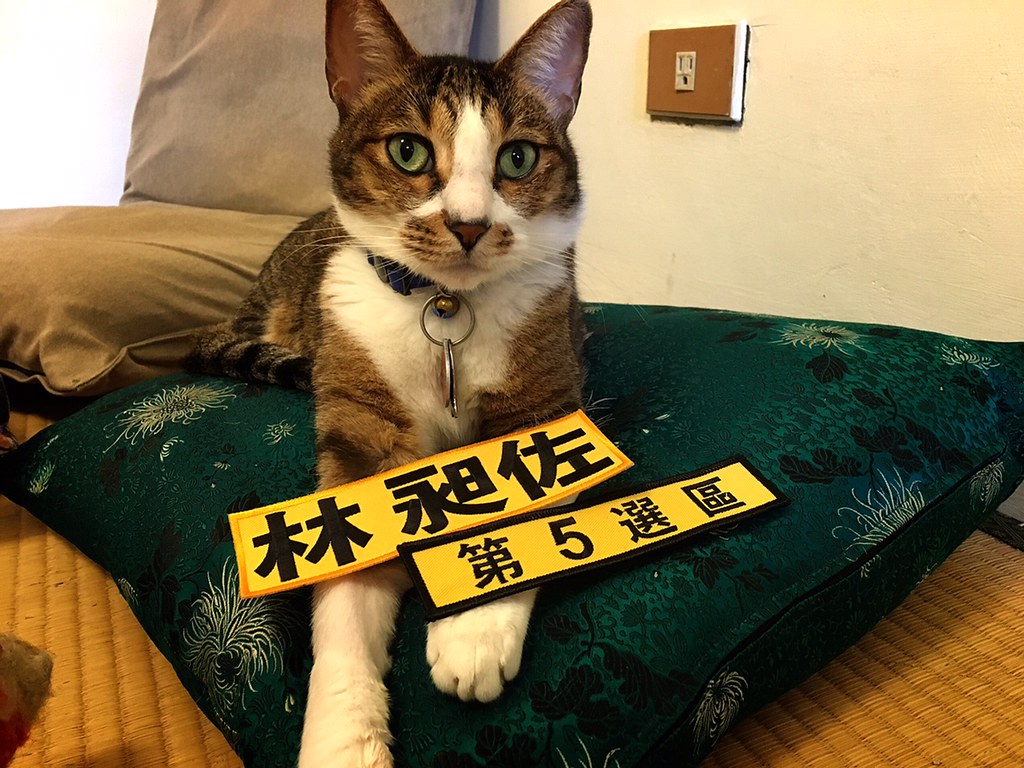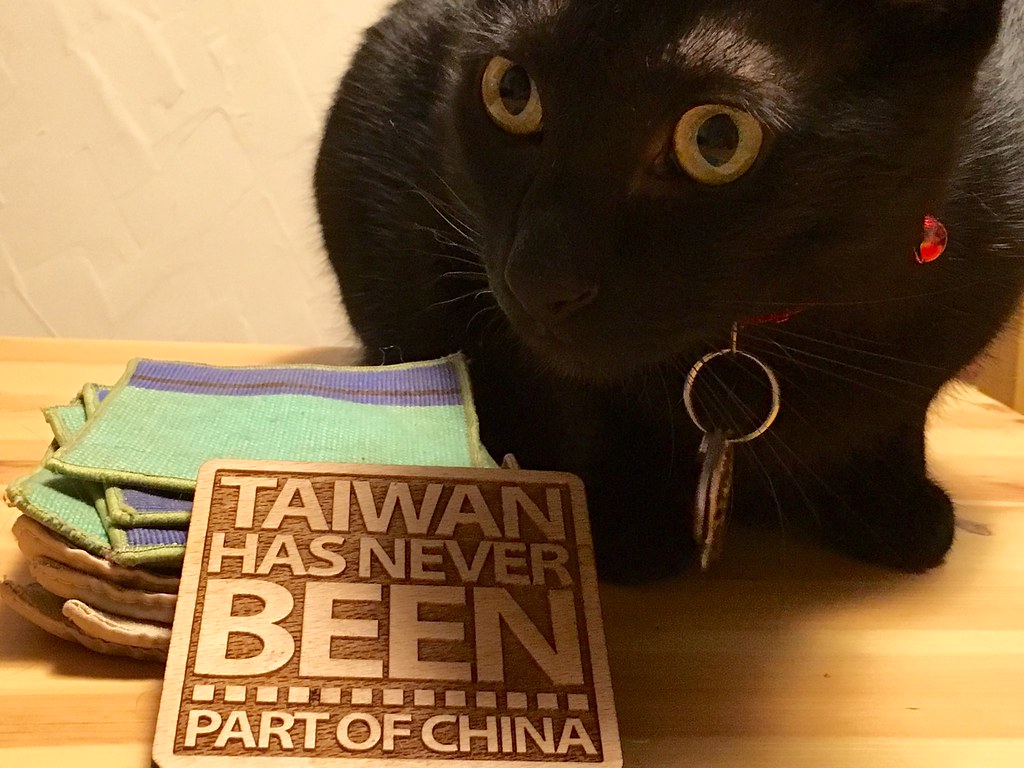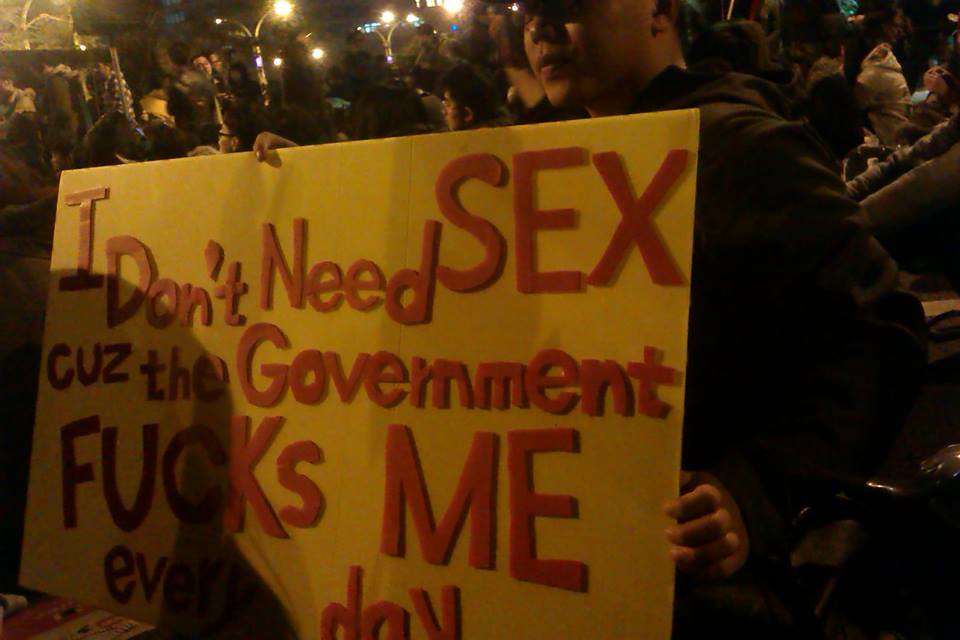 |
| Just one example of the things you can say in Taiwan because this country recognizes basic human rights |
I'm hoping to keep this short because I've had a lot of wine (well hello Georgia, how are you? Like wine, do ya? I like wine too!) and really, this should be obvious.
That said, please enjoy my half-addled rant after more than a few rants, I mean, wines.
But I've heard this sentiment expressed twice in my trip so far, once in Athens as we were waiting to board the flight to Yerevan, and once over dinner outside the small town of Alaverdi in northern Armenia, the day before we crossed the border to Georgia.
Both times, otherwise intelligent and worldly people put forward a belief system in which human rights are 'Western', rather than global. That's not what I'm going to address today, though I will if it ever becomes necessary. It seems is sufficiently clear that human rights are global, hence the word 'human'. I'm not that much of an absolutist (nor am I a total relativist), but I do believe that, absent the existence of any god(s), civilization benefits from greater equality - a classically liberal view. As such, fundamental human rights are based on the freedoms necessary to realize that equality to the greatest extent possible. And as such, they are global. Exhibit B: plenty of non-Western countries respect, or try to respect, these basic human rights. Therefore they are clearly not simply "Western". Taiwan is one such country. This doesn't mean I think Westerners are so much more clever than everyone else for having come up with what we refer to when we talk about basic human rights - one good idea does not make a certain model of society 'better', and in any case, they are obviously adaptable to other cultures (Exhibit C is also Taiwan) and therefore not intrinsic to Western culture. Every culture that has adopted them has benefited (Exhibit D - you guessed it - Taiwan). Similar cultures (Exhibit E: China) that have not done so have avoided such a framework to their detriment.
Why do I say all this, when it's not my main point?
Because the opposite belief - that human rights are a Western construct - it underpins what I really want to go after: the idea that Singapore is somehow a model for modern Asia, that it is the system to look up to when we consider a progressive Asian country. That when we consider the best of Asia, that Singapore is at or near the top, along with Hong Kong, and possibly Japan and South Korea. Singapore seems to get the most mentions because unlike Hong Kong, it is independent. Unlike Japan, it is more open to foreign investment, business and residency. Unlike South Korea it hasn't been mired in a series of political scandals and economically seems to many to be the most successful of the old Asian Tigers. (I'm not sure how true that final point is, but a lot of people sure seem to think so).
I've mentioned twice on this trip that if you want a model for progressivism and liberalism in Asia, you must look at Taiwan. Not only that, but Taiwan is the best possible model.
Both times, the rejoinder has been "But - Singapore!"
Both times, I suspect the person talking was thinking about economics, as though promoting free markets and a global economic outlook were the same as promoting classical social liberalism. For some they do go hand-in-hand, but one is not a substitute for the other. It's easy to look at shiny-skyscraper Singapore, with its streets you (mostly) could eat off of, with its (mostly) glossy, Western sheen, and think "a model for liberal, modern Asia!" It sure looks nice, and yes, I've been there. I like Singapore quite a bit for a visit, in fact, and spend a lot of my time slurping sambar with masala dosa in Little India.
Let me be clear: Singapore is not free. Singapore (more or less) has free markets, but it is not free. It was the poster child for the stale and risible "Asian style democracy?!?!?" debate of the turn of the millenium. It was, perhaps, a model for Asia when developing East Asia was considered key and the idea that some cultures do well with less freedom (that is, less access to human rights) still had currency. The idea took as a given that the people in East Asian societies not only wanted but would choose less freedom and fewer human rights because, I dunno, "their culture" or something. As though human rights are not adaptable to any culture. As though Western societies, once lacking rights for non-white or non-male people, did not evolve to include them while maintaining their culture. As though human rights and a greater sense of collectivism were mutually exclusive (SPOILER: they are not).
I won't get too far into how Taiwan's economy is also fairly open - the reasons why it is stagnating are not related to a lack of free markets. Some of the issues are domestic: corruption, brain drain, poor allocation of resources, slow reactions to problems, ineffective ideas, a focus on cutting labor costs and manufacturing when those are two areas where Taiwan will never be - and should never be - competitive again. Some of it is China being a giant flaming asshole.
My point is, if you want to look for a model for Asia in terms of classical liberalism and modernity, look to Taiwan. Taiwan is not perfect, but it is, more or less, free.
In Singapore, making a few YouTube videos criticizing the government merits enough punishment that the kid who did it was granted asylum in the US (the US apparently has kept him detained, but that's another story). Singapore does not have freedom of expression. In Taiwan, marching down the street with a banner that says "Fuck The President" (something I actually saw once) is a protected right (of course, if you say that about a private citizen, you could be sued for 'defamation' and you might well lose - Taiwan's not perfect). There are more erudite ways to make one's case, but freedom of expression doesn't only cover nuanced arguments. Though imperfect, Taiwan is a model for freedom of expression in Asia.
In Singapore, sexual acts between men are still illegal, and marriage equality is not even on the government's radar as a possibility. The annual pro-equality Pink Dot in Singapore is allowed despite not having government support, but international participation is not. Singapore, then, does not have equal rights. In Taiwan we will - we must, as per the Ministry of Justice - have marriage equality soon, and its Pride parade is the biggest in Asia. Taiwan is a model for equal rights in Asia.
Singapore is not a democracy - at least not in the thick sense of the word, which I believe to be the real sense of the word. Taiwan is. Singapore is not a model for modern democracy. Taiwan, warts and all, is. This infographic gives it a lower democracy ranking than Japan or South Korea, but I feel, with more time and less wine (or perhaps more wine), that could be refuted well - for example, Taiwan is consistently ranked as having a freer press, has shaken off the party that used to dominate politics whereas Japan has not, has not had a major presidential scandal on par with South Korea's, and while all three countries enjoy freedom of assembly, Taiwan's actually seems to result in a reasonable amount of change. These, to me, are all important aspects of a full, thick democracy, and in most cases, Taiwan wins. Singapore, of course, doesn't come close.
Singapore does not have a free press. Taiwan has a crappy press that publishes nonsense 'news' while ignoring or mutilating real stories, but it is free. The freest in Asia. Facts can be found, and are hard to suppress, in Taiwan. In Singapore the government acts as though it has the right to withhold the truth from its citizens and use the main newspaper in the country (the Straits Times) as a pro-government mouthpiece.
One area where both countries falter is women's equality. Both have equal rights enshrined in law, but neither has done a great job of turning that into real equality in daily life. In both countries despite equal rights, pay gaps persist, families prefer sons and women are expected to prioritize caregiving more than men (and more than their careers).
In short, although Taiwan's economy needs a jump start, if you are looking for a country that serves as a model for the rest of Asia in terms of how human rights and freedoms can be adapted to suit a non-Western culture, look no further than Taiwan. Taiwan remains a more collectivist culture than any Western culture I know. That cliched old "mix of traditional and modern" stereotype, a favored flourish to many writings on Taiwan by people who don't know the country very well, has some truth to it. And yet, because human rights needn't be a Western construct, Taiwan has managed to adopt them. You may be surprised to learn that their culture has not imploded as a result, just as giving women the right to vote didn't cause Western countries to sink into apocalyptic hellscapes. It's doing just fine. The culture adapted and evolved, as culture does.
OK that was pretty long, and now I need more wine.


